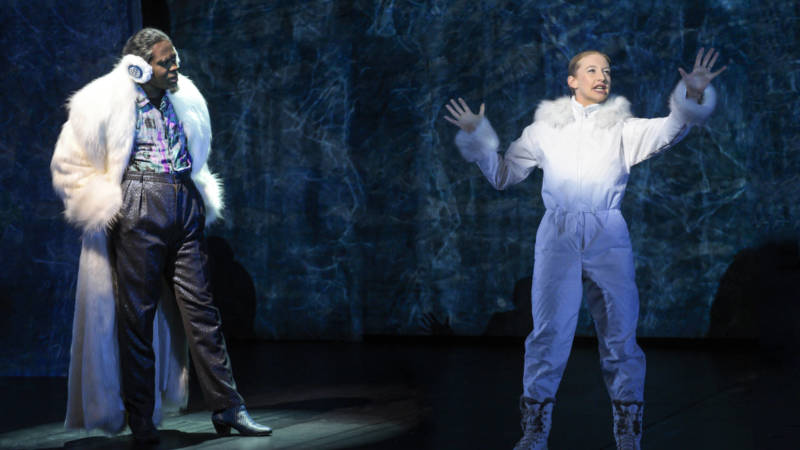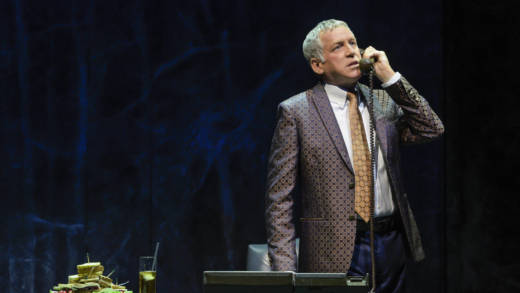Angels in America, Tony Kushner’s mind-bogglingly brilliant and magical play about the early days of the AIDS crisis, Glasnost, Ronald Reagan, Mormonism, Jewishness, the villainy of Roy Cohn and angels, was born in San Francisco. Kushner wrote parts of the play at a cabin near the Russian River, and rewrote (and rewrote) drafts at Café Flore in the Castro. Tony Taccone, now the outgoing Artistic Director for Berkeley Repertory Theater, and Oskar Eustis, now head of New York’s Public Theatey, commissioned the sprawling pair of plays, each about three-and-a-half hours long, for the Eureka Theater in 1990, where part one got its first production. Then Eustis and Taccone directed the first full production in Los Angeles back in 1992.
Belize, the heroic AIDS nurse in the play, describes Heaven as just like San Francisco. “Everyone in Balenciaga gowns with red corsages,” Belize says, “and big dance palaces full of music and lights and racial impurity and gender confusion. And all the deities are creole, mulatto, brown as the mouths of rivers. Race, taste and history finally overcome.”

Taccone is directing the two sprawling plays again as he ends his tenure leading Berkeley Rep. He told me on a rare day off that he’s loving the arduous process. “It’s a big mountain to climb,” Taccone said, “and we’re climbing it. But also the views are beautiful on the way up.”
The play, Taccone says, was prescient on climate change and politics in ways no one saw at the time. “We see it in the triumph of right wing policies and with Trump in the White House,” he said. Cohn, a prominent character in the play, “was an early mentor to Trump.”
But the play’s genius is clear, not for its accurate predictions, but for it’s magical moments and acts of mercy. An angel invests a man dying of AIDS with the burden of prophecy. The ghost of Ethel Rosenberg says the Jewish prayer for the dead over lawyer Cohn, the man who helped send her to the electric chair for spying for the Russians.


